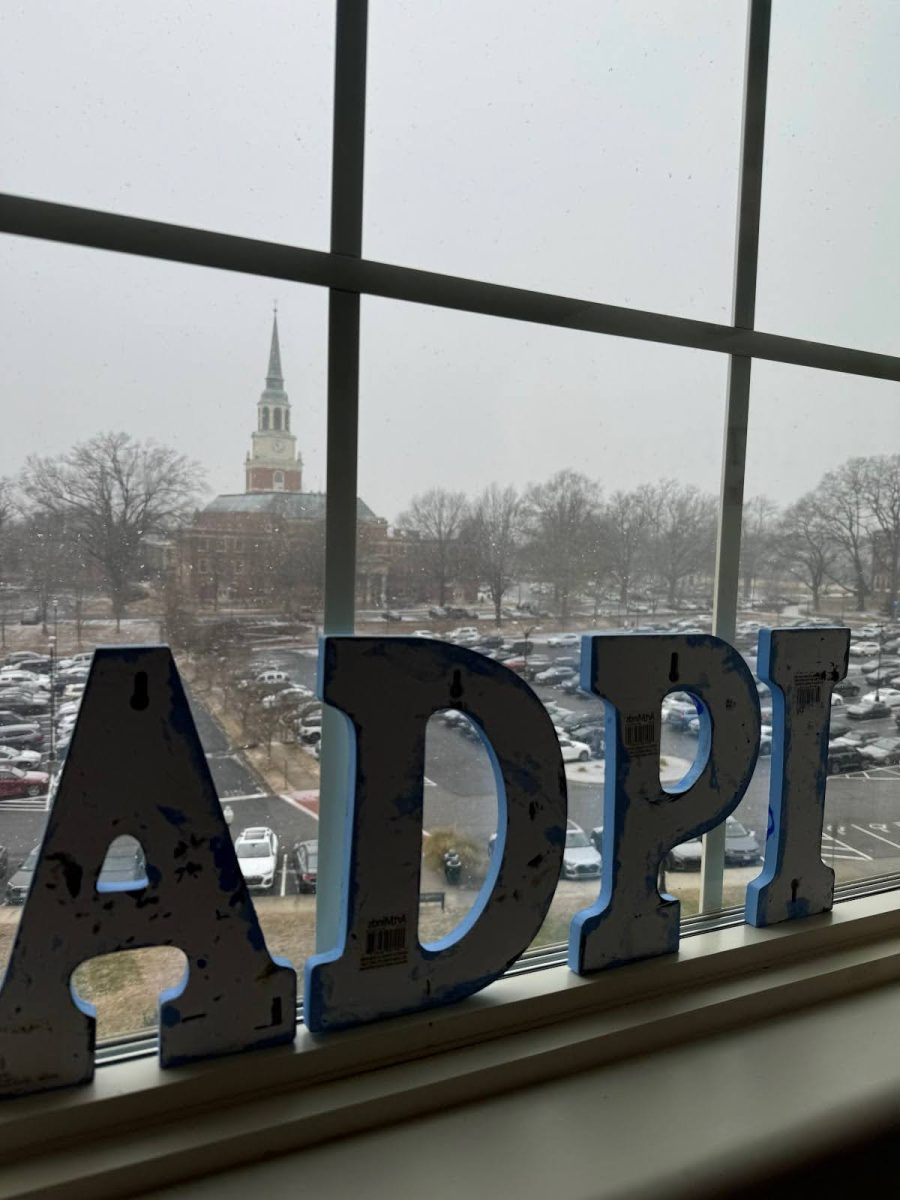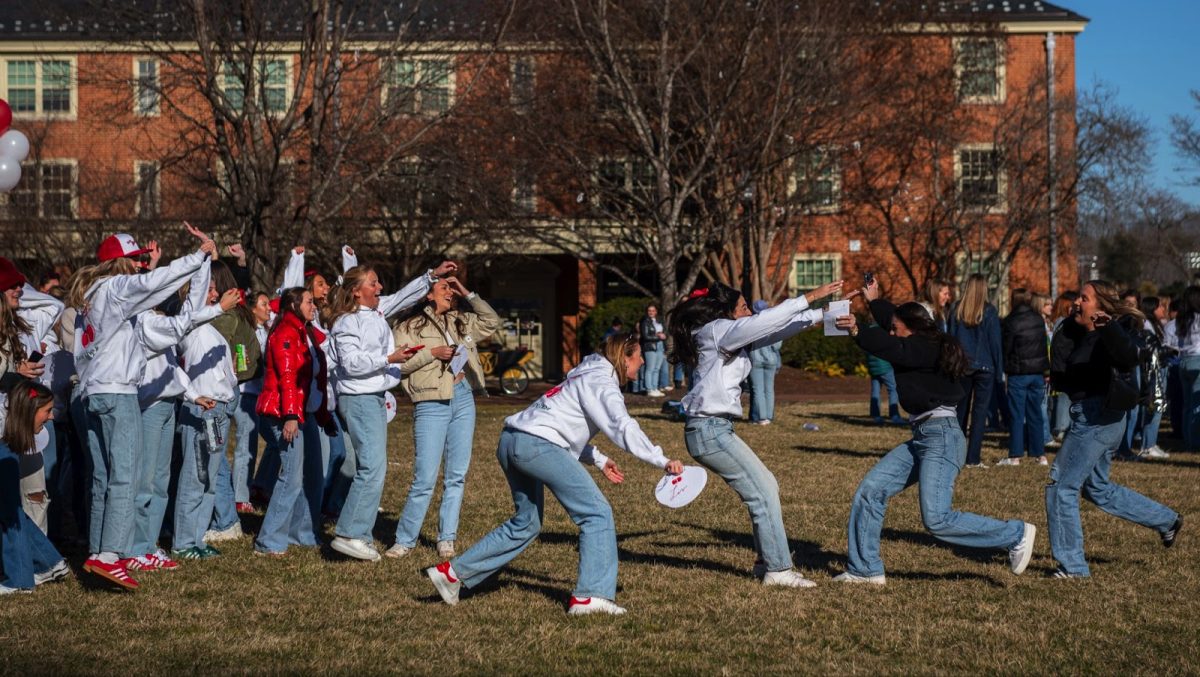It is halfway through the semester here at “Work Forest,” and as the weather outside gets colder and the workload gets harder, I still often think back to summer and how I miss the bliss of no homework or clubs and of simply being less anxious.
At this point in the semester, with an overwhelming amount of midterms and rigorous extracurriculars to keep up with, most students — including myself — have been feeling burnt out both mentally and physically.
Burnout isn’t just a made-up idea, but a medically recognized phenomenon. According to the National College Health Assessment, 80% of college students reported feeling overwhelmed, and 40% reported it was difficult to function.
Social psychologist Christina Maslach defines burnout as “emotional exhaustion, depersonalization and diminished personal accomplishment in the work environment.” Maslach created a Burnout Inventory, which bears her name, to conceptualize her definition, which is considered to be the gold standard for measuring burnout.
During these past few weeks of struggling to keep up with the pressure of Wake Forest’s culture of involvement, I’ve wondered if I was wrong for feeling burnt out. It seems like everyone has it all together, leaving me feeling isolated in my thoughts because, honestly, Wake Forest is overwhelming.
At Wake Forest, there is this need to overachieve, ensuing overwhelming anxiety. I’m here to tell you that you’re not alone — it’s normal to feel this way.
The reality is that all these factors combined can be pretty demotivating for tired college students who are just trying their best. Sophomore James Garcia — who is currently applying to the business school at this busy time of the semester — is no stranger to this feeling.
“I would say this is my busiest semester to date,” Garcia said. “Taking accounting and preparing my application for the business school, as well as beginning the internship application cycle for sophomore summer internships –– I’ve had to prioritize school and professional development over physical and mental health.”
Fall Break just took place, and it felt no different to Garcia.
Wake Forest students had off from classes on a Thursday and Friday in mid-October, giving students a four-day break. Four days of no classes certainly didn’t mean four days of a mental break. Assignments were due, and midterms took place immediately after, leaving students with no time to catch a real break.
“Fall break didn’t really feel like a break, but as a time to catch up on work and get ahead on academics since the semester ahead was going to be strenuous,” Garcia said.
Sophomore Dani Fernandez is the epitome of an overcommitted student. She is double majoring in economics and biology with a minor in bioethics and a concentration in Spanish for Health Professions. On top of that, she plays on the Club Soccer Team and is treasurer of Advocating Reform for Correctional Clients, officer for the on-campus service fraternity Alpha Phi Omega, a research assistant and a student adviser. She also tutors fourth-grade children from Forsyth County and works in the library and as a Spanish interpreter at a community clinic every week.
“I’m very involved in the Wake Forest community, and I love that, but I do feel there is the factor of Wake Forest’s cultural pressure of getting extra involved to the point that it [becomes] a little too much to handle,” Fernandez said. “I feel like I need to pick and choose where I dedicate my time and do sometimes have doubts that I could be doing better in certain areas if I dedicated more time there and took time away from a different activity.”
Fernandez and Garcia echo my thoughts –– and what I believe are the thoughts of most of the student body.
The environment at this school is such that everyone is doing so much at any given time that simply taking classes and keeping up with your academics — which is a very big commitment in and of itself — is never enough.
I, too, feel stretched too thin at almost all times. On campus, I am on the executive board for Alpha Kappa Psi and on staff at the Old Gold & Black. I also have a weekly show on Wake Radio and also serve as an editor for the mental health publication IfYou’reReadingThis. But the moment I take time for myself, I instantly feel like I’m not doing enough and falling behind the rest of my peers. That’s when imposter syndrome kicks in.
Because the minute I decide that academics need to be my center of attention for a couple of days, and I want to step back from clubs even a little bit, I feel like I don’t deserve to be at this school and don’t belong here. It can often feel like I’m the only one not being able to keep up with the pace.
Last semester was atrocious for my mental health. Even though I took fewer credits, I was still overwhelmed, but I also constantly felt like I wasn’t doing enough. When your mental health is suffering that much, it takes away from you, leaving you physically and mentally exhausted, with no energy to partake in any activity that brings you joy.
It’s a vicious cycle and leads to anxiety.
I didn’t want to lighten my schedule, though, because admitting that kind of weakness and admitting the fact that you aren’t doing as well as you expected to be doing is very difficult.
Expectations of the kind of student I was supposed to be at this school left me no time to tend to my mental health, and I was exhausted and unhappy. There is a negative connotation in the environment of this school around taking a break. Conversations with peers often feel like a competition to see who is doing the best, waking up the earliest and having the most productive days.
Admitting that you didn’t wake up at the crack of dawn and have been having a hard week and are maybe behind on some school work feels like a very daunting task. Sometimes, I feel like I am falling behind in this unspoken race that every Wake Forest student is running against each other.
Now that I am a sophomore, I am no longer trying to figure my way around the firsts of college and have a stronger sense of what is going on around me. Even though classes and extracurriculars are getting more difficult and time-consuming, I’m reminding myself that I need a break to help me get through them.
While I don’t think there is necessarily a solution to Wake Forest’s culture of over-involvement, I have had to work a lot on the way I think about grades and the fact that a bad grade isn’t the end of the world. At the end of the day, nothing is worth sacrificing your mental health. There are healthy ways to meet your academic goals — you just have to find what works for you.
All this to say, if you are feeling burnout, know you are not alone, and that this unfortunately comes with the territory at this school. Don’t forget to take time for yourself and do things that bring you joy.
Take time for your physical and mental well-being – whatever that means for you.
















